|
The Norwegian government is turning to the Court of Appeal seeking to reverse a landmark ruling that invalidated the State’s approvals of three new oil and gas fields in the North Sea on climate grounds. The verdict, delivered by the Oslo District Court on January 18, 2024, halted any further permitting or development of the offshore fields.
That court-imposed order, called an injunction, remains in effect regardless of the government’s attempt to challenge it, according to Frode Pleym, head of Greenpeace Nordic, which brought the climate lawsuit against the State along with Natur og Ungdom (Young Friends of the Earth Norway). The environmental groups successfully argued that the State’s approvals of the new oil fields, called Breidablikk, Yggdrasil, and Tyrving, did not adequately account for their expected contribution to global greenhouse gas emissions as required under Norwegian and EU law. The groups pointed to the Norwegian Supreme Court’s finding in a prior version of this litigation that Norway is obligated to consider the full climate impact of oil and gas projects prior to their approval. That includes the emissions generated when the oil is combusted, even if it happens outside Norway’s borders. In approving the North Sea fields, the government dismissed or downplayed the climate impact, the district court found. Such a deficient environmental assessment violates Article 112 of the Norwegian constitution and the EU Project Directive, according to the verdict. “This is the first win on oil for environmental organisations against the petrostate Norway,” Klimentina Radkova, climate and energy advisor and legal campaigner with Greenpeace Nordic, said via email. “It also creates precedent for other European countries, by way of the Project Directive.” The EU Project Directive mandates that EU member states take climate impacts into consideration in environmental impact assessments. Climate campaigners beyond Norway may seek to build upon the Greenpeace court win in Oslo as they challenge government-sanctioned fossil fuel expansion projects. While the UK is not subject to the EU Project Directive, climate lawyers there are hopeful they can convince courts that opening up new oil fields in the North Sea, like the Rosebank field, is absurd and unlawful in the midst of a climate emergency driven largely by fossil fuels. The UK also disregards combustion emissions in allowing these new projects to move forward. As Tessa Khan, a lawyer and executive director of the climate organization Uplift, writes in The Guardian: “The judgment in Norway has set an example that provides fertile ground for the government’s position to be challenged in UK courts.” It will now be up to the Court of Appeal in Norway to decide whether or not to uphold this judgment. “We can confirm that we are appealing the verdict,” Stine Grimsrud, spokesperson for the Norwegian Ministry of Energy, said via email. In a press release commenting on its decision to appeal, the Ministry said it disagrees with the district court’s finding of “procedural errors” in the fields’ approvals. According to the Ministry, it has complied with the Supreme Court’s ruling around consideration of a petroleum project’s full climate impact, claiming, “we now also assess combustion emissions when processing each individual development plan.” The Ministry says that going forward, it will be making adjustments in its assessment process for combustion emissions in order to be more inclusive. Norway’s Ministry of Energy also defended its continued support for oil and gas extraction. “The judgment from the Oslo district court is about the case management process related to new development projects, not whether we should have oil and gas production on the Norwegian continental shelf or not. We shall still have that. The government will further develop, not liquidate, the petroleum sector,” Energy Minister Terje Aasland said in the press release. Leaders with Greenpeace Nordic and Natur og Ungdom say they are confident that their case will survive a challenge on appeal. “We have a very strong case and are ready to fight for this on behalf of future and current generations,” Pleym said. “We are disappointed that the State does not want to acknowledge their legally bound duty to assess the climate impacts of Norwegian oil and gas, but we are convinced that the Court of Appeal will uphold the verdict from Oslo District Court, Gytis Blaževičius, head of Natur og Ungdom, added. For now, the district court’s ruling remains in effect and demonstrates that courts can play a critical role in holding governments accountable in the context of the climate emergency. “It is another case in a long line of climate litigation which has been successful in holding authorities accountable,” Radkova said, “and it shows that no one is above the law and we as citizens have mechanisms in place which safeguard our rights.” *Updated February 1, 2024 with comments from Norway's Ministry of Energy
0 Comments
The Dutch NGO that successfully sued Shell announces new climate case against fossil fuel financier ING, while the island of Bonaire files climate lawsuit against the Dutch state The Netherlands has been a hotspot for climate litigation. In 2015 the Urgenda Foundation along with Dutch citizens won a historic verdict against the Dutch government, marking the first time in the world that a court ordered a government to take more stringent climate mitigation action. The Dutch Supreme Court upheld this ruling in 2019, setting a powerful example indicating that governments have a legal duty to respond more urgently and effectively to the climate crisis in line with their human rights obligations. In 2021 a Dutch court delivered a groundbreaking decision in a climate lawsuit against oil major Shell, implying that this legal duty extends also to (multinational) corporations. Next month a court is expected to issue a decision in a climate case alleging greenwashing by Dutch airline KLM. And so far this month, Dutch citizens and climate campaigners have launched two new legal challenges – one against the government, and one against the country’s largest bank. On January 19, Friends of the Earth Netherlands (Milieudefensie) announced the initiation of legal action against the Dutch bank ING. In a “notice of liability” letter to ING’s board chair, the first step of litigation, Milieudefensie says the bank has breached its legal duty of care by failing to align its business with the objectives of the Paris Agreement, including by continuing to finance polluting companies that are driving dangerous levels of warming inconsistent with global climate action goals. “ING continues to exacerbate the climate crisis,” Donald Pols, director of Milieudefensie, said at a press conference announcing the group’s plan to take the bank to court. He noted that ING “still partners with and funds companies that start new fossil fuel projects” and that ING has said it would stop funding new oil and gas projects only by 2040 – 15 years too late. According to the letter, ING has self-reported that its financed GHG emissions are 61 megatonnes of CO2-equivalent (in 2022), which is greater than the annual emissions of entire countries like Sweden or Cambodia. And in the years since the Paris Agreement entered into effect, ING has issued more than 83 billion Euros in bonds to the fossil fuel industry. Given this financing going into climate destabilizing companies and activities, Pols says that ING “is the banker of the climate crisis.” His organization is demanding that the bank stop engaging with big polluters if they fail to demonstrate they have credible climate transition plans. Milieudefensie also demands that ING halve its own emissions by 2030 (at least 48% reduction in CO2 and 43% reduction in CO2-e) and ensure its climate plan is fully aligned with the Paris Agreement goal of limiting warming to no more than 1.5 degrees C. In an online statement responding to the announcement from Milieudefensie, ING defended its climate position, saying its financing of non-sustainable activities like fossil fuel projects is merely “a reflection of the current global economy.” “We're confident that we take impactful action to fight climate change,” Arnaud Cohen Stuart, head of Business Ethics for ING, said in the statement. “We will of course respond in court if necessary.” Milieudefensie has requested a response to its letter within eight weeks, and if the bank does not agree with the NGO’s demands, then the group will file a lawsuit in court. Milieudefensie Jong, the organization’s youth division, is also a claimant in the matter. “I hope that just like in the Shell case, the scales of Lady Justice will be in favor of life, and not money,” Winnie Oussoren, chairman of Milieudefensie Jong, said during the press conference. Milieudefensie is the Dutch NGO that took Shell to court over climate change – and won. The District Court of the Hague ruled in 2021 that Shell must reduce its entire supply chain emissions (Scopes 1, 2, and 3) by at least 45 percent by 2030. Shell has appealed the verdict, and the appellate court is scheduled to hear the case this April. Meanwhile, eight Dutch citizens from the Caribbean island of Bonaire along with Greenpeace Netherlands officially sued the Dutch state last week over climate. Bonaire, a low-lying island located about 80 kilometers off the coast of Venezuela, is a former Dutch colony that is now a special municipality of the Netherlands. The island is vulnerable to rising sea levels and is already experiencing severe flooding, extreme heat, and degradation of coral reefs, among other consequences of anthropogenic warming.
The Netherlands has not done enough to protect residents of Bonaire from these worsening climate impacts, the claimants say. By taking the Dutch government to court, they aim to compel the state to develop a concrete plan to help the island adapt and survive, and to ensure the Netherlands takes even more aggressive climate mitigation action than it has already committed to. The lawsuit requests the court to order the government to do its “fair share” to try to limit warming to no more than 1.5 degrees C, which entails zeroing out emissions by 2040 at the latest, 10 years earlier than currently planned. In the government failing to take these actions, the case alleges the government is violating its legal obligations under human rights law. “It is the duty of the Dutch government to protect us all from the consequences of the climate crisis,” Andy Palmen, director of Greenpeace Netherlands, said in a press release. “Bonaire is being hit hard by rising sea levels, heat and the disappearance of coral. The government has a duty to limit global warming as much as possible and is now failing to do so.” According to a Greenpeace-commissioned study by the Vrije Universiteit Amsterdam (VU), a fifth of the island could be permanently submerged before the end of the century. Greenpeace Netherlands initiated legal proceedings last year in May by sending a letter to the Dutch prime minister laying out the demands to protect Bonaire from further climate injustice. On January 11, Greenpeace delivered the court summons at the District Court of The Hague. Norwegian Court Overturns Norway's Approvals of New Offshore Oil Fields on Climate Grounds1/18/2024 A court in Norway has delivered a key victory for climate campaigners in the fight against fossil fuel expansion, determining that the Norwegian government’s approvals of three new offshore oil and gas fields violated Norwegian and European law.
The Oslo District Court’s verdict, issued January 18, 2024, is the culmination of a legal challenge launched last year by Greenpeace Nordic and Natur og Ungdom (Young Friends of the Earth Norway) that sought to invalidate the state’s approvals of the Breidablikk, Yggdrasil and Tyrving fields in the North Sea. The environmental groups argued the government’s decision did not adequately account for the fields’ expected contribution to the climate crisis, and were illegal under the Norwegian Constitution, EU law and the UN Convention on the Rights of the Child. Ultimately, the court agreed that the fields’ approvals were unlawful. The court’s verdict renders them invalid and prohibits the government from issuing any new permits to construct and operate the fields. Production from one of the fields, Breidablikk, had already started. “The judgement establishes that the Breidablikk, Yggdrasil and Tyrving oil and gas fields were approved on an illegal basis and that production must be stopped immediately. We expect a halt to all further developments,” Frode Pleym, head of Greenpeace Norway, said in a statement. The legal challenge built upon a prior lawsuit brought by the same organizations against the government over its granting of new offshore oil licenses. While the Norwegian courts did not rule in the environmental groups’ favor, the Norwegian Supreme Court did determine that the government is obligated to consider the full climate impacts of new oil projects before granting approvals. That determination formed the basis of the new lawsuit, which claimed these climate assessments were either not done or were highly insufficient. The Oslo District Court found that the government failed to consider the combustion emissions that would stem from new oil production even if those emissions occur outside of Norway. These emissions, the court said, are “such a significant and particularly characteristic consequence of such projects”, and they must be taken into account in order to comply with EU law and with Article 112 of the Norwegian constitution. Additionally, the court pointed to procedural deficiencies with the approvals of the new oil fields, including a lack of opportunity for public participation. Along with revoking the state’s approvals of the three North Sea fields, the court ordered the state to pay damages and court fees amounting to NOK 3,260,000. The verdict comes following a trial held in late November and early December 2023, at the same time that the COP28 UN climate conference was taking place in the United Arab Emirates. “If we win, it would provide a lot of transparency about the real consequences of new oil and gas fields in Norway,” Klimentina Radkova, climate and energy adviser and legal campaigner at Greenpeace Nordic, said during a COP28 press conference hosted by Greenpeace International, appearing via video from the court in Oslo. Nikki Reisch, climate and energy program director at the Center for International Environmental Law, noted during that press conference that new oil and gas development is inconsistent with global climate goals. “If we are to avoid foreseeable climate catastrophe there is simply no room to open up new oil and gas fields,” she said. “This case in Norway is a reminder that no matter what happens in these halls at COP, governments have existing legal duties outside and will be held accountable to them in court.” Gytis Blaževičius, head of Natur og Ungdom, called the ruling from the Oslo District Court an “important victory for current and future generations and the environment.” “During the trial, the State tried to diminish the impact of the emissions Breidablikk, Tyrving and Yggdrasil would have globally,” Blaževičius said. “As confirmed by the court’s decision, emissions from the oil fields would have catastrophic effects on the global climate, on people and the planet. We are pleased the oil and gas will remain untouched in the ground.” The youth climate activists from Ontario, Canada challenging their provincial government’s scaled back climate policy through the courts continue their battle for accountability as their case came before the appellate court this week in a critical hearing. On January 15, the Ontario Court of Appeal heard oral arguments in the youth climate case Mathur et al. His Majesty in Right of Ontario, which contends that the Ontario government’s relaxed 2030 greenhouse gas emissions reduction target exacerbates grave climate harms in violation of the fundamental rights of youth and future generations under the Canadian Charter of Rights and Freedoms. The lawsuit, brought in 2019 by seven young people from across the province, advanced to a hearing on the merits in September 2022 – the first rights-based climate case in Canada to reach this stage. Despite affirming many of the youth applicants’ points, the Superior Court ruled in April 2023 to dismiss the case, a decision currently being challenged on appeal. “Our fight against Ontario’s inadequate climate targets is undeterred,” 16-year-old applicant Sophia Mathur of Sudbury, Ontario said in a statement. “Heading to the Court of Appeal, we stand resolute, unwavering in our commitment to protect the rights of all and secure a sustainable future for generations to come.” “Backtracking is Unacceptable” The litigation arose in response to action taken by the province’s conservative government, under the leadership of Premier Doug Ford, in 2018 to repeal Ontario’s 2016 climate law that established a cap-and-trade program and set GHG emissions reduction targets. Rather than upholding or strengthening the 2030 target of 37% reduction (below 1990 levels), the government’s new plan rolled back the target, setting it at 30% reduction (below 2005 levels). According to Danielle Gallant, a lawyer with the nonprofit organization Ecojustice that is supporting the youth applicants in the case, this move was completely inconsistent with climate science and warranted a rights-based legal challenge. “We say in doing so they violate youth and future generations’ rights to life, to security of the person and to equality protected under the Canadian Charter of Rights and Freedoms,” Gallant explained in a phone interview. “Ontario has done what not many governments have done in the world and that is to take a step backwards on climate action, when the world’s scientists tell us we have to do more rather than less,” she said. “I think this element of backtracking is unacceptable.” “In this day and age given the extent of the crisis and what we know will happen,” Gallant added, “there’s no excuse for governments to set targets that are so out of line with science.” While the Superior Court agreed that the weakened target lacked scientific basis and that inadequate climate action poses an increased risk of harm to young people, it determined that the scaled back policy was not ‘arbitrary’ and did not amount to Charter violations. The youth applicants’ legal team argued at the Court of Appeal that this finding was erroneous, given the court’s acknowledgement that the target fell severely short of the scientific consensus on climate mitigation. Gallant said the team also argued that the government was affirmatively endangering young people. “This is not a case about mere inaction…the government is actively stepping in and increasing the risk of harm and death to Ontarians.” Nearly a dozen intervenor groups representing constituencies such as parents and grandparents, Indigenous communities, and doctors and physicians appeared in court to speak in support of the young Ontarians’ case, Gallant said. The youth applicants were there as well, and it was the first time they were able to physically be in court since previous hearings were held remotely.
A decision could come within the year, and the case is likely to then go to Canada’s Supreme Court regardless of the outcome as a final appeal is expected. If the lawsuit is ultimately successful, the courts could order Ontario to set a new 2030 target that is grounded in the science. That is one remedy the applicants seek. They also want the courts to declare that the province’s current policy violates their Charter rights. Outside of Canada, rights-based climate lawsuits against governments have seen some successful outcomes, mostly in Europe. In the US a state court judge delivered a groundbreaking victory last summer to young people in Montana who sued their state government over a fossil fuel-friendly policy that contravened climate science. The state is currently appealing that decision, which remains in effect with the Montana Supreme Court this week denying the state’s request to stay (or pause) the ruling while the appeal is underway. Gallant said that Montana’s historic verdict “was a source of hope, because the US is such a larger emitter. So to see a jurisdiction within the US finally be held accountable means a lot to the rest of the world.” Like the Montana case, the litigation in Ontario is part of a broader trend of youth turning to the courts amidst the worsening climate emergency, and the stakes are incredibly high. “It’s their generation that stands to bear the brunt of climate change,” Gallant said. “For them this issue is existential. They’re fighting for their right to a livable future.” The state of Delaware’s lawsuit seeking to hold fossil fuel companies liable for alleged climate deception and climate-related costs is one step closer to trial after a state court judge refused to completely dismiss defendants’ bids to toss out the case.
Superior Court Judge Mary M. Johnston issued an opinion on January 9 striking out several elements of the state’s complaint but upholding other allegations, including a claim that the companies failed to warn about the climate consequences associated with their products. "We're grateful that the Court denied several Big Oil defendants' efforts to evade accountability," Mat Marshall, a spokesperson for the Delaware Attorney General Office, said in an emailed statement. "We're reviewing Judge Johnston's opinion and analyzing next steps, and are undeterred in our pursuit of justice for Delawareans enduring the cost of climate change." Delaware’s lawsuit, filed in September 2020, targets more than two dozen oil and gas companies and their chief lobby group the American Petroleum Institute, accusing them of decades of deceitful conduct intended to maximize fossil fuel sales and profits while publicly denying or downplaying the climate risks. This has led to increased fossil fuel combustion and subsequent climate breakdown with severe and costly impacts to the state such as coastal flooding and erosion and extreme heat, the complaint asserts. Delaware also alleges the defendants continue to mislead the public through greenwashing and false advertising. The lawsuit includes claims of negligent failure to warn, nuisance, trespass, and violation of the Delaware Consumer Fraud Act. After unsuccessfully trying to force the case into federal court, where they envisioned an easier path to dismissal, the industry defendants lodged a multitude of grounds for dismissing the lawsuit. The court heard these arguments in late September 2023, and its decision reflects some concessions granted to defendants. The consumer fraud claims and general allegations of greenwashing were tossed out. Judge Johnston’s opinion found that the Delaware Consumer Fraud Act claims are barred by the five-year statute of limitations, and that the state’s alleged misrepresentations lacked specificity, though the state could amend its complaint to address that with more particularity. Her opinion also partially sided with defendants on the question of whether the federal Clean Air Act preempts the state’s claims pertaining to global greenhouse gas emissions. Interstate emissions are subject to the CAA and preemption would apply, though not for “damages resulting from air pollution originating from sources in Delaware.” The court declined to dismiss the state’s claims of nuisance and trespass, though it did narrow the scope of those claims to pertain only to state-owned land. The court also refused to dismiss Delaware’s failure to warn claim. A move by six of the defendants – BP, Chevron, Exxon, Shell, TotalEnergies, and American Petroleum Institute – to assert lack of specific jurisdiction, claiming they lacked any relevant contact with the state of Delaware, was further rejected by the court. The court did find, however, that TotalEnergies should be dismissed or released from the case due to “failure to be served with process.” Additional motions to dismiss under Anti-SLAPP laws, as requested by API and Chevron, were also denied. The court’s ruling overall does limit the scope of Delaware’s case, but allows it to advance nonetheless towards the discovery and trial stages. The ruling comes one day after another climate accountability case brought against Big Oil by the state of Minnesota got a boost from the US Supreme Court’s denial of defendants’ petition to intervene, allowing it to proceed in state court. Several other climate cases, including ones filed by Massachusetts and by the city and county of Honolulu, are now in the pre-trial discovery phase. Updated January 12, 2024 with a statement from the Delaware Attorney General Office A federal trial court judge in Oregon has rejected the US government’s latest attempts to quash the constitutional climate case Juliana v. United States, once again allowing the youth-led civil rights lawsuit to advance to trial.
In a ruling issued on December 29, 2023, US District Judge Ann Aiken denied the government defendants’ motions to dismiss and to further stall the litigation as well as their request to bring another pre-trail appeal. Aiken’s ruling also orders the parties to arrange a pre-trial conference to discuss next steps including scheduling a trial date. The case had been previously slated to start trial five years ago on October 29, 2018, but the government’s extraordinary and repeated obstruction tactics derailed the trial and ultimately resulted in a federal appeals court ordering the case be dismissed in January 2020. First filed in 2015 by the nonprofit law firm Our Children’s Trust, representing 21 young people from across the country, the lawsuit challenges the US government’s promotion and perpetuation of a fossil fuel-based energy system that is contributing to the climate emergency, which disproportionately burdens youth as climate impacts worsen over time. The government’s conduct is unconstitutional, the case contends, endangering youth plaintiffs’ fundamental rights under the Fifth Amendment to the US Constitution, as well as amounting to reckless destruction of life-sustaining natural resources in violation of the public trust doctrine. While the case had originally sought both a court declaration of these violations and a court order for the government to develop a science-based “climate recovery plan” to help reverse atmospheric carbon dioxide concentrations back down to a limit of 350 parts per million, a Ninth Circuit Court of Appeals panel held that the latter remedy was outside the scope of the courts’ authority to impose. In a 2-1 decision the panel decided the case should be terminated, and it sent the case back to the trial court with instructions to dismiss. But in a June 1, 2023 order Judge Aiken revived the litigation in granting plaintiffs’ request to move forward under a revised version of their complaint, which eliminated the ask for the court to order government action. With the case now seeking only declaratory relief, Aiken noted that the question of determining whether constitutional rights have been violated “is squarely within the purview of the judiciary.” “Defendants appear to misunderstand the function of the Court acting within its prescribed authority to declare what the law is—it is not the Court which will perform ‘a sweeping policy review,’ it is defendants,” Aiken wrote in her December 29 opinion. The 49-page filing recognizes the climate crisis as “the great emergency of our time” and restates Aiken’s finding expressed in her initial denial of the government’s bid to dismiss in 2016 – “the right to stable climate system that can sustain human life is fundamental to a free and ordered society.” Attorneys for the youth plaintiffs say they are pushing to have the case scheduled for trial this year. “We’re working with the Department of Justice to set up a prompt scheduling conference, and we hope to get a trial date in 2024,” Phil Gregory, Of Counsel with Our Children’s Trust, said via phone. “This path to justice has been over eight long years in coming,” Julia Olson, chief legal counsel for Our Children’s Trust, said in a press release. “Finally, in 2024, the Juliana plaintiffs will have their long-awaited trial and the federal government’s fossil fuel energy system will be measured and judged by the fundamental constitutional rights of these youth.” The case could still face roadblocks on the path to trial, however. “There are hurdles [at this stage],” said Michael Gerrard, founder and faculty director of the Sabin Center for Climate Change Law at Columbia Law School. He said he expects the Department of Justice will again turn to the Ninth Circuit court in a bid to delay or prevent trial. “I think there’s going to be a strong impulse to try to block this,” Gerrard said. If the Ninth Circuit were to reject the government’s petition, the US Supreme Court could still stall or block trial at the government’s request. That is effectively what happened last time around in 2018, when the Supreme Court issued a temporary stay or pause on the litigation just 10 days before the start of trial. This is also a federal election year in the US, and the presidential election is shaping up to be a consequential contest in which the continuation of constitutional democracy itself is likely at stake. That adds another layer of urgency for the Juliana plaintiffs’ constitutional climate case to proceed to trial in 2024. “We want to follow Judge Aiken’s order and get a prompt trial date,” Gregory said. “We’ll see how the Biden administration’s Department of Justice handles this.” A pair of Indian Tribes in the US Pacific Northwest are taking major oil and gas companies to court over climate-related damage and alleged deception. On Wednesday, December 20 the Makah Indian Tribe and the Shoalwater Bay Indian Tribe each filed climate lawsuits in King County Superior Court in Washington State against some of the largest petroleum producers on the planet, demanding they help pay for escalating costs of responding and adapting to the climate crisis. Like other climate suits filed by local jurisdictions in the US against the fossil fuel industry, the Tribes’ cases say the rising damage costs stem from a decades-long campaign of corporate deception that effectively sustained society’s reliance on fossil fuels and delayed meaningful climate policies. “Defendants mounted a disinformation campaign beginning as early as the 1970s to discredit the burgeoning scientific consensus on climate change; deny their own knowledge of climate change-related threats; create doubt about the reality and consequences of the impacts of burning fossil fuels; and delay the necessary transition to a lower-carbon future,” the Tribes’ near-identical complaints state. The deceptive conduct continues to this day, the cases contend, as the industry has shifted from outright climate denial to prolific greenwashing and promotion of unrealistic technologies or ineffective approaches to solving the climate pollution problem. Named defendants in the Tribes’ complaints include ExxonMobil, BP, Chevron, Shell, ConocoPhillips, and Phillips 66. “These oil companies knew their products were dangerous, yet they did nothing to mitigate those dangers or warn any of us about them, for decades,” Shoalwater Bay Tribal Chairwoman Charlene Nelson said in a press statement. “Now we are facing hundreds of millions of dollars in costs to relocate our community to higher ground and protect our people, our property, and our heritage. These companies need to be held accountable for that.” The lawsuits are brought under state law claims of public nuisance and violation of Washington’s Products Liability Act for failure to warn, misrepresentation, and concealment. The Tribes seek relief in the form of compensatory damages and making the companies pay into an abatement fund to “remediate and adapt [Tribal] Reservation lands, natural resources, and infrastructure.”
In the US and around the world, Indigenous Peoples are especially vulnerable to worsening climate impacts, including the risks of cultural and physical displacement. In their complaints, the Makah and Shoalwater Bay Tribes say they face “existential threats to its people and its land from climate change.” “We are seeing the effects of the climate crisis on our people, our land, and our resources. The costs and consequences to us are overwhelming,” Makah Tribal Council Chairman Timothy J. Greene, Sr. said in a press statement. The Tribes’ cases are the latest in a growing wave of lawsuits brought by US communities against major corporate climate polluters aiming to hold companies like Exxon and Shell liable for their consequential climate lies and alleged wrongdoing that magnified the severity of the climate crisis in order to protect their fossil fuel profits. More than two dozen cities, counties, and states across the country, and one fishermen’s trade association, have sued major oil and gas entities so far. While the cases vary slightly in terms of their legal claims and remedies sought, they all seek accountability. “We intend to hold these companies accountable for hiding the truth about climate change and the effects of burning fossil fuels,” Chairman Greene said. “And we aim to force them to help pay for the high costs of surviving the catastrophe caused by the climate crisis.” Story originally published by DeSmog
A federal appeals court in Canada breathed new life into a youth-led constitutional climate lawsuit against the Canadian government, allowing it to proceed towards trial on a narrower scope and partially reversing the trial court’s ruling that the entire case should be tossed. In its opinion issued on December 13, Canada’s Federal Court of Appeal determined that one part of the legal claims asserted in the case was viable and that a trial would help assess whether that claim violates the constitution. Initially filed in 2019 by 15 young Canadians, La Rose v. His Majesty the King alleges Canada’s policies and actions that perpetuate fossil fuels and worsen the climate crisis amount to violations of youths’ fundamental rights under the Canadian Charter of Rights and Freedoms. The case’s claims under Section 7 of the Charter, pertaining to the rights to life, liberty, and security of the person, should be addressed given the grave impacts of the climate crisis, the appeals court determined. “After four years, we have finally had a court affirm the validity of our experiences and the Government’s responsibility to youth,” plaintiff Lauren Wright said in a statement. “The chance to have our day in court on our section 7 claim is a massive step forward that brings me hope.” While the court asserted that other claims in the case, including under the public trust doctrine and Section 15 of the Charter, were rightly dismissed, it disagreed with the determination from Justice Michael Manson of Canada’s Federal Court that the case overall was too political and unprecedented to warrant rejection by the courts. Manson dismissed the suit in an October 2020 ruling. “Where novel Charter claims test the boundaries of a right, such claims may require a trial in order to understand the nature of the legislation, executive action or regulation and the harm experienced by claimants. This is one of those cases,” Justice Donald J. Rennie wrote in the unanimous appeals court decision. The court explicitly recognized that “the burden of addressing [climate] consequences will disproportionately affect Canadian youth,” and that climate impacts like displacement and loss of culture, food insecurity, and even death, are “widespread and grave.” “Back on the track to trial” The court’s decision comes after a hearing earlier this year to determine if the case should go forward. Before the case can move to trial, the court requested that plaintiffs’ attorneys revise the complaint to focus on challenging a particular government action or policy. “That’s exactly what we’ll do, and once we amend the complaint in that way we are confident that we’ll be back on the track to trial,” Andrea Rodgers, senior litigation attorney at Our Children’s Trust – a nonprofit law firm that spearheads and supports rights-based youth climate lawsuits against governments and is backing the Canadian case – told DeSmog. She said the legal team plans to file the amended complaint early next year. A trial could be scheduled to start sometime in 2025. An appeal from government defendants to Canada’s Supreme Court is unlikely at this stage, Rodgers said. “The Government of Canada shares the concerns of Canadians across the country and agrees that climate change is an urgent priority and that there is more to do,” Hannah Boonstra, spokesperson for Environment and Climate Change Canada said in a statement. “It is also important to recognize the role that collective action has in addressing climate change, and that young people and Indigenous communities are among those leading the charge toward a cleaner future,” she added. Boonstra said the government would make no further comments since the case is before the courts. Canada is one of the world’s largest emitters of climate pollution, and ranks as the fourth biggest producer of oil and sixth biggest fossil gas extractor. According to a September “Planet Wreckers” report from Oil Change International, Canada is poised to become the second largest contributor, after the U.S., to cumulative carbon emissions from new oil and gas projects through 2050. Climate Action Tracker rates Canada’s progress towards meeting the goals of the Paris Agreement as “highly insufficient.” The appeals court ruling notes that Canada “has consistently missed the emissions targets it has set for itself” and is “similarly on track to miss its future emissions targets.” Rodgers said that although the Canadian government acknowledges that climate change endangers its youth, actions speak louder than words. “The emissions continue to rise, and the pipelines continue to be authorized, and the oil continues to flow,” she said. “That’s why courts need to step in and draw the line on what is constitutionally permissible. Unfulfilled government promises are not going to protect young people from climate change.” Story originally published by The New Lede
US environmental regulators have allowed “dangerous levels of climate pollution” to destabilize the climate system with horrific impacts that will worsen over time, according to allegations laid out in a federal lawsuit filed Sunday by a group of California youth. “We are running from wildfires, being displaced by floods, panicking in hot classrooms during another heat wave,” 15-year-old plaintiff Noah C. said in a statement. He is one of 18 young people named as plaintiffs in the lawsuit against the US Environmental Protection Agency (EPA) filed in US District Court for the Central District of California. (The last names of the plaintiffs are abbreviated due to their ages.) “We feel a constant worry about the future, and all around us no one is moving fast enough.” EPA Administrator Michael Regan and the US federal government are also named as defendants in the case. The lawsuit charges the government with knowingly endangering the lives and welfare of the nation’s youth by permitting unsafe levels of greenhouse gas emissions tied to the burning of fossil fuels, in violation of the US Constitution’s rights to life, equal protection, and due process. Additionally, the case contends that EPA has acted beyond its constitutionally delegated authority in allowing extensive climate pollution that harms human health and welfare. The climate crisis is “government-imposed and sanctioned,” the lawsuit states. “Climate crisis is the single greatest driver of the health of every child born today.” The plaintiffs seek a court declaration that EPA has violated their constitutional rights and breached its constitutional duty, and it asks courts to clarify for the first time the judicial standard of review for protecting the rights of children as a distinct and protected class. The new case hones in on the “longstanding discrimination” against children who are disproportionately affected by climate harms and who are unable to vote in electoral politics, said Andrea Rodgers, a lawyer at Our Children’s Trust, the nonprofit law firm that has spearheaded rights-based youth climate litigation in the US. “This case really focuses on EPA’s systemic discrimination against young people because of their knowing conduct in allowing climate pollution,” Rodgers said. “I think it’s all the more urgent when you’re talking about children. They do not have the political protection that adults have, and that’s why they’re going to the courts.” The EPA declined to comment on the lawsuit itself, but said in a statement the agency “is committed to using the full scope of its authorities to protect communities and reduce the pollution that is driving climate change,” and “appreciates that young people are sounding the alarm on climate change.” The lawsuit, Genesis B. v. United States Environmental Protection Agency, comes just four months after a court ruling in favor of young residents of Montana in the first youth-led climate lawsuit to go to trial in the US. In that ruling, Judge Kathy Seeley of the Montana’s First Judicial District Court asserted that the state’s constitutional right to a clean and healthful environment includes climate. Several other US courts have similarly recognized the right to a stable climate system. Earlier this year the Hawaii Supreme Court ruled that citizens have the right to a “life-sustaining climate system” and a case in Oregon brought by 21 youth is moving forward after the judge in that case rejected the government’s efforts to dismiss it. “There is one federal agency explicitly tasked with keeping the air clean and controlling pollution to protect the health of every child and the welfare of a nation—the EPA. The agency has done the opposite when it comes to climate pollution and it’s time the EPA is held accountable by our courts for violating the US Constitution and misappropriating its congressionally delegated authority,” Julia Olson, executive director of Our Children’s Trust said in a statement. A court in Belgium has delivered a major victory for the citizens suing their national and regional governments over their inadequate measures addressing the climate emergency. In a ruling described as “groundbreaking,” the Brussels Court of Appeals is ordering the governments to slash greenhouse gas emissions by at least 55% (below 1990 levels) by 2030, marking only the second time that a court has imposed a binding emissions reduction target on a country in a climate lawsuit. In 2015 a Dutch court ordered the Netherlands to take measures to curb emissions by at least 25% by the end of 2020 in a case brought by the Urgenda Foundation and Dutch citizens. This world-first decision was ultimately upheld on appeal.
The Belgian case, first filed in 2015 by an association called VZW Klimaatzaak and over 58,000 Belgian citizens, is styled the same as the Urgenda case in that it challenges governmental climate policy and seeks court intervention to compel governments to do more to rein in emissions and safeguard citizens’ fundamental human rights. The landmark Urgenda case has inspired a wave of rights-based climate litigation throughout Europe and beyond, with courts in Ireland, France, Germany, Colombia, and Nepal, for instance, already ruling against government defendants. In 2021 the Brussels Court of First Instance issued a verdict finding that the Belgian state and several regional jurisdictions were in breach of national and international law due to insufficient climate policy deemed to be ‘negligent’ in failing to protect human rights. Specifically, the governments were found to be in violation of Belgium’s “duty of care” law and Articles 2 and 8 of the European Convention on Human Rights, which protect the rights to life and to private and family life. However, the court did not order the governments to take specific actions or to reduce emissions by a given amount. Based on that shortcoming, plaintiffs appealed the judgment. Following oral arguments from September 14 to October 6, 2023, the appeals court handed down its decision on November 30 – which also happens to be the starting date of the COP28 UN climate summit in Dubai. The court not only upheld the lower court’s findings of violations of domestic law and of the ECHR, but went further in issuing injunctive relief by requiring the governments to take all necessary measures to reduce emissions 55% - at minimum – by 2030. While the global climate governance regime under the UN Framework Convention on Climate Change (UNFCCC) has seen painstakingly slow progress and undue influence by fossil fuel and other industrial interests, the courts offer a glimmer of hope in their potential to hold governments and corporate actors alike accountable as the climate crisis deepens. As a press release from VZW Klimaatzaak commenting on the Belgian case verdict puts it: “The fact that this particularly strong judgment was handed down on the first day of the international climate summit COP 28 in Dubai underlines the imperative need for rapid and decisive climate policy. Although world leaders have been meeting for decades to discuss how to reduce global emissions, they have never been higher than today. This political failure constitutes a serious threat and violation of our human rights and is increasingly being corrected by the judiciary, including today in Belgium.” Indeed, the climate fight is increasingly being brought to courtrooms around the world, and the role of the judiciary to intervene amidst a grave failure of political will to adequately confront the climate emergency is becoming even more apparent and necessary. “The ruling is not only important for Belgium, but also provides guidance for what must be demanded of other countries,” said climate lawyer Roger Cox. “It will help accelerate the global climate approach.” |
Archives
April 2024
Categories |
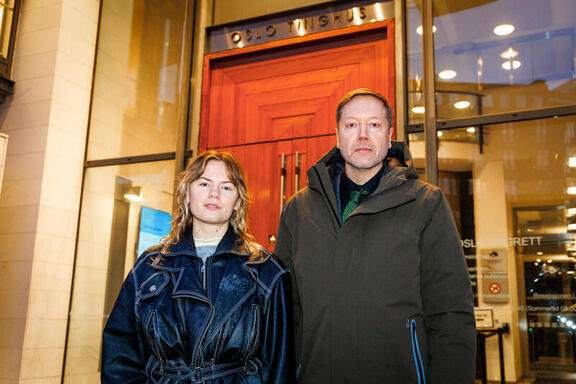
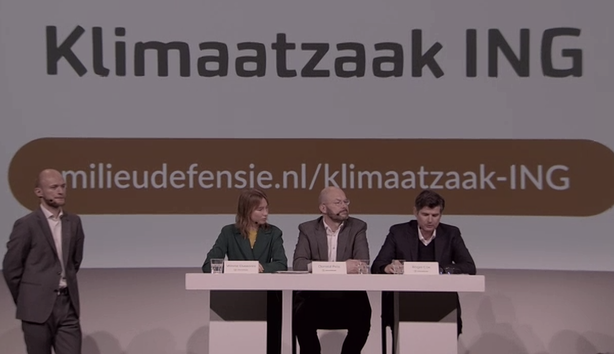
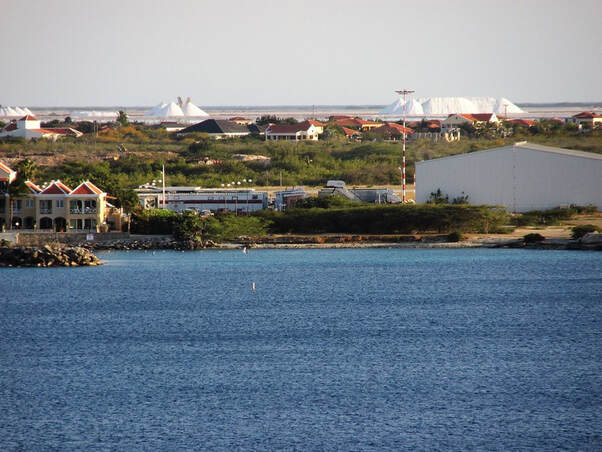


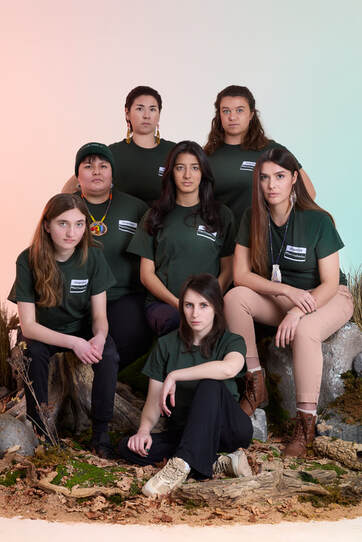

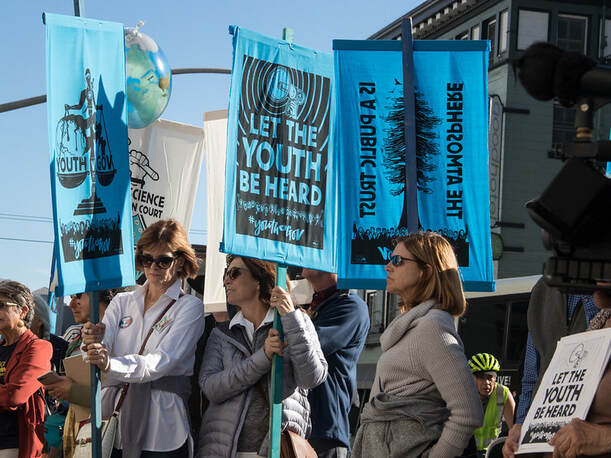
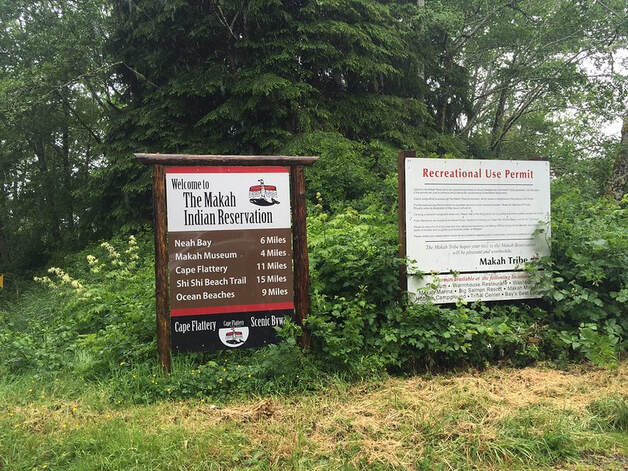
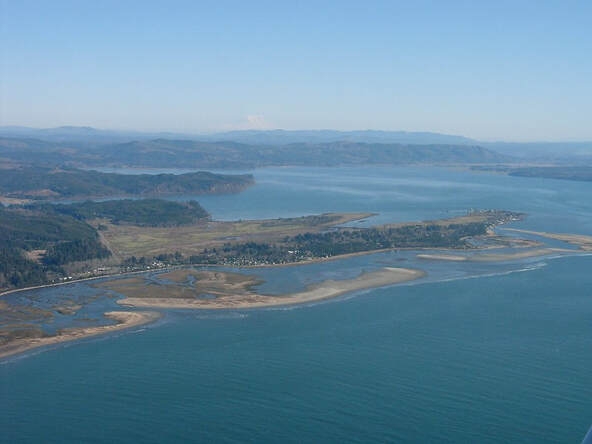
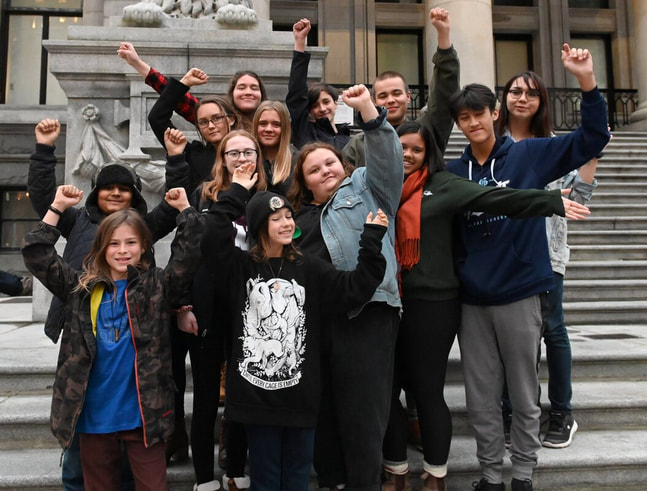
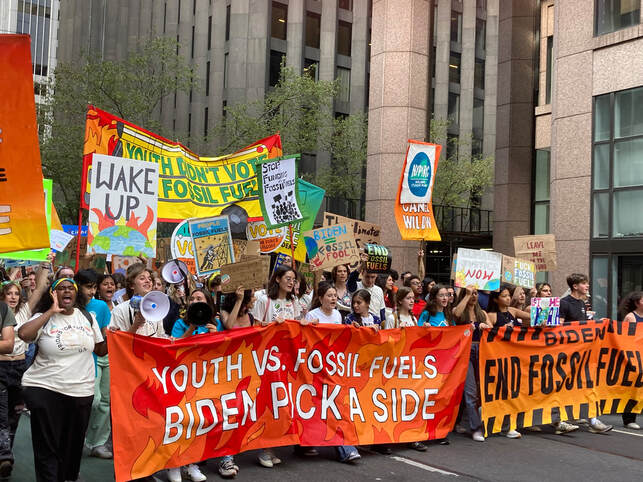
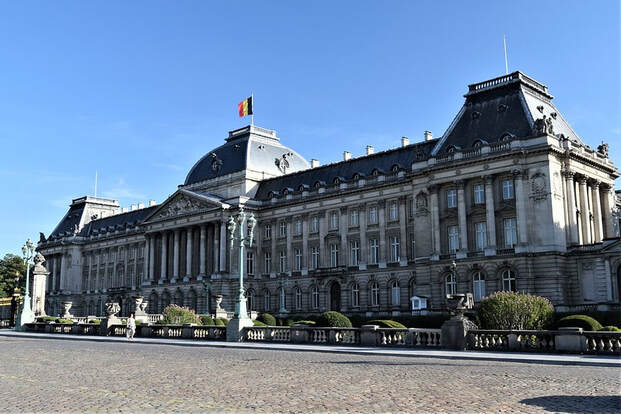
 RSS Feed
RSS Feed
